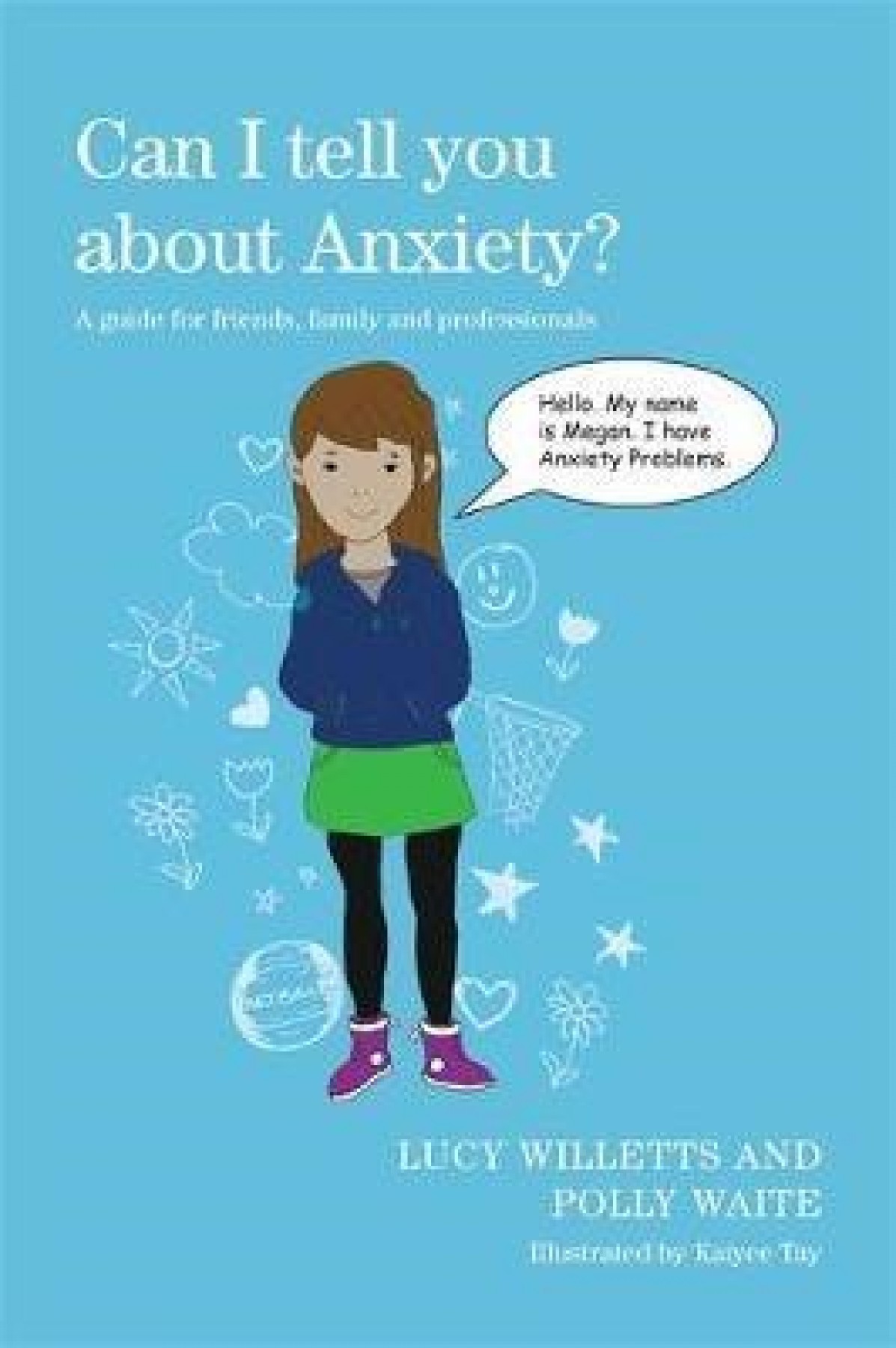Megan, a fictitious 10-year-old girl who experiences anxiety, explains the different types of anxiety and the effects it has on her life, and ways that it can be treated. The book says it is suitable for seven years and older. Personally, I feel there are sections that would suit kids aged over 10 with support from an adult when it comes to clinical words and definitions. That said there are pages with simplified text and illustrations that provide more age appropriate information for those under 10.
Can I Tell You about Anxiety’s friendly approach normalises feelings of anxiety and gives a good baseline to measure against when anxiety gets in the way of everyday activities.
The young reader is regularly reassured that they are not alone, that anxiety can run in families and that children with anxiety have positive traits as well, such as: kind, caring and thoughtful. The story gives the reader hope and a clear message that they can learn skills to cope.
Support for a young person with anxiety is key and there are several pages detailing how family, friends and teachers can be there for children experiencing anxiety. Interestingly, it notes how parents, often in their desire to protect their child, encourage them to avoid stressful situations. But this means the child doesn’t get the opportunity to learn to cope in stressful situations.
One such tool discussed that can be used to learn coping strategies is the step plan, or hierarchy, where the child chooses a concern, or situation, to work on challenging first. Another suggested approach is to empower, rather than just assure an anxious child that everything will be ok. You can empower a child by asking questions, such as: how are you feeling, what are you thinking and is there another way of approaching this?
Cognitive Behavioural Therapy (CBT) is covered with examples, allowing the young person to be their own detective and become more mindful of their thoughts and proactive in choosing new ways of reacting or self-soothing. The bibliography of further books written for young people using CBT principles to cope with anxiety is very useful and these titles would complement what is learnt in Can I Tell You about Anxiety?
It would be nice to know more about the kids who inspired Megan. Some real-life case studies would have added depth. That said, the book brings insight, solid advice and reputable tools to help kids and adults in dealing with anxiety. The book would also help break the ice when broaching the topic, allowing kids an opportunity to think about what might work for them.
Reviewed by Kim Higginson, Information Resources Specialist at the Mental Health Foundation

